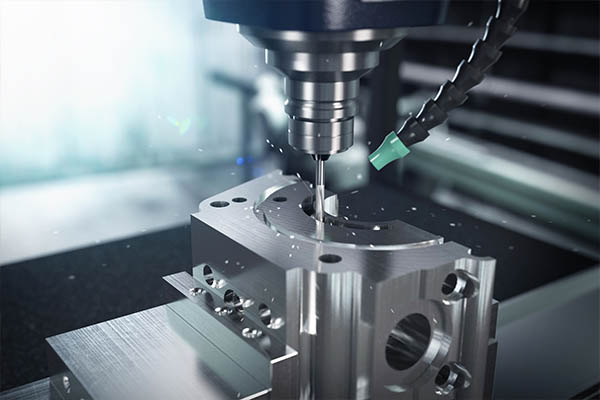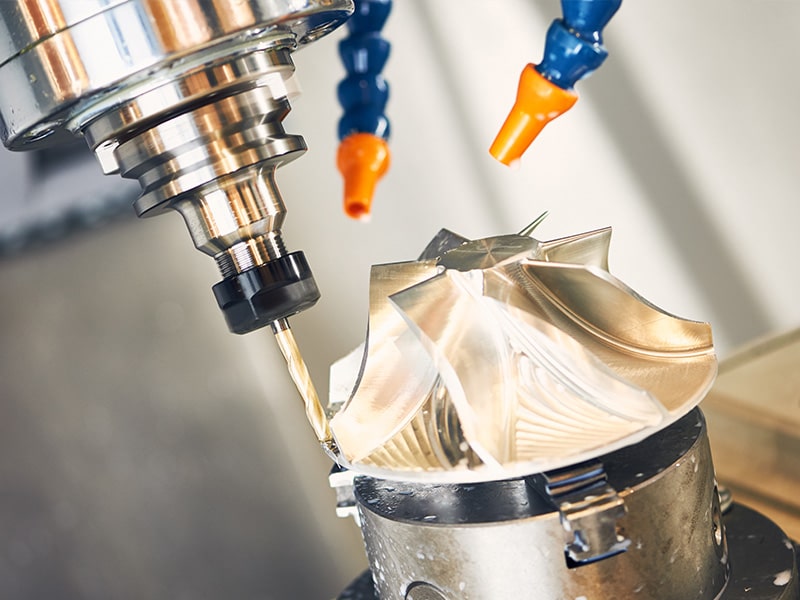CNC Machining: Revolutionizing Manufacturing with Precision and Effectivity
CNC Machining: Revolutionizing Manufacturing with Precision and Effectivity
Blog Article
CNC machine machining is one the most innovative technologies of the modern world of manufacturing. It has revolutionized the way industries produce parts and components that offer a degree of accuracy, precision as well as versatility unmatched by traditional methods. CNC machining makes use of computerized controls and machines to carry out various tasks such as cutting, drilling, milling, or grinding of materials that range between plastics and metallics, as well as composites and wood. In automatizing the manufacturing process, CNC machining eliminates many of the inefficiencies and errors that are inherent to manual processes. It is the result of a process which can create highly precise components more quickly and more consistently, stimulating innovation in industries ranging that range from aerospace to consumer electronics.
One of the major advantages of CNC machining is its ability to produce highly detailed and complex parts that would be nearly impossible to create using traditional production methods. CNC machines work on digital drawings, which implies that once a part's design is programmed in the machine, it is able to be accurately reproduced and consistent. This is particularly beneficial in fields like automotive, aerospace, or electronics where precision is crucial. Moreover, CNC machining is capable of working with a broad variety of materials, from soft plastics to tough metals. It allows companies to make parts that are able to meet certain needs for toughness, durability and heat resistance. The versatility of CNC machine has created the possibility of new product designs as well as engineering.
Apart from its high-precision, CNC machining is also acknowledged for its speed and value. The traditional machining techniques typically require skilled workers to manually adjust and control the machinery and can take a long time and expensive. CNC machines eliminate a large portion of the manual effort involved in the production process since machines operate autonomously for extended periods once set up. It allows companies to boost productivity without needing to hire additional staff or equipment. Furthermore CNC machines are capable of performing several operations using a single configuration which reduces the requirement for part transfers and repositioning to save time, and decreases the possibility of mistakes. Automation results in faster production cycles and lower costs per unit, making CNC machines a desirable solution for firms seeking to improve their manufacturing processes.
Also, CNC machining offers high reproducibility, assuring that each part produced is identical to the original design. This is especially important in the industries that demand massive production of components that are standard like automotive or consumer electronics. Because CNC machines follow programmed instructions, they can produce hundreds or even thousands of parts with minimal variations in their quality. This ensures the quality of final products, but it also minimizes the amount of waste produced, since fewer components get rejected because of defects. Also, since the designs that are used for CNC manufacturing can be easily adjusted or changed, producers are able to quickly adjust to changes in product specifications or the demands of their customers, without needing costly retooling or machine recalibration. To find further information kindly check out Premiumparts
Apart from the speed and accuracy, CNC machining is valued due to its economic efficiency, and especially for large-scale production runs. After the initial set-up and programing of the machine are complete production of additional parts require very little effort and reduces total production costs. For manufacturers working with expensive materials like aerospace-grade alloys, CNC machining reduces waste by optimizing the cutting process and ensuring that every part produces with little loss of material. Precision and efficiency are what make CNC the ideal tool to both prototypes and large-scale production since it permits manufacturers to quickly test and tweak designs and keep production costs in check.
The ecological impact on the environment CNC operations is an additional aspect worth considering. While traditional manufacturing methods often result in a substantial quantity of waste materials, CNC machines are recognized for their high efficiency. By precisely cutting and shaping the raw materials used in manufacturing, CNC machining minimizes waste by minimizing both costs for materials and environmental footprint. Furthermore, the automated nature of CNC machines decreases the amount of energy consumed compared to manual machining processes. Modern CNC machines are designed with sustainability in mind, making use of energy-efficient systems and motors for further reducing the carbon footprint of their machines. This makes CNC manufacturing an environmentally-friendly option for manufacturers looking for ways to decrease waste and conserving resources.